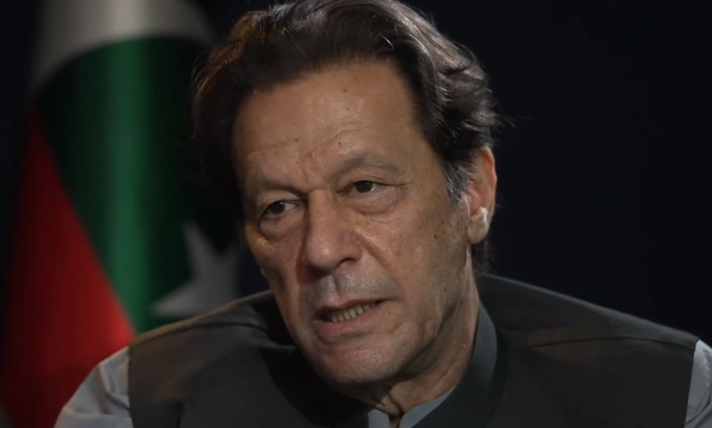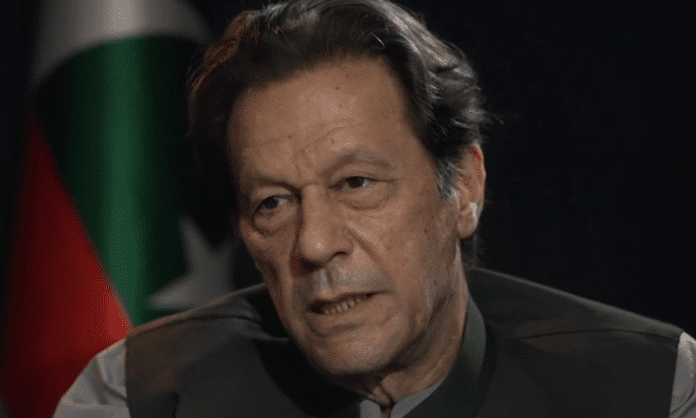The former prime minister blames management for the team’s ongoing struggles, pointing to their decline since the T20 World Cup triumph.
Imran Khan
Former Pakistan cricket captain and ex-Prime Minister Imran Khan has unleashed sharp criticism against Pakistan Cricket Board (PCB) chief Mohsin Naqvi following the national team’s crushing 10-wicket loss to Bangladesh in the first Test of their two-match series at Rawalpindi Cricket Stadium. This defeat has not only shocked fans but also ignited a broader conversation about the current state of Pakistan cricket, particularly under the leadership of Naqvi.
Khan, known for his blunt and often controversial opinions, did not hold back in expressing his deep disappointment over the team’s recent performances. His concerns were not merely about this one loss but reflected a broader frustration with the team’s drastic decline in form. He emphasized how Pakistan cricket, once a powerhouse on the global stage, has now become a shadow of its former self.
The former prime minister’s criticism was rooted in the stark contrast between Pakistan’s current struggles and their historic 10-wicket victory over India in the 2021 T20 World Cup. Khan pointed out how a team that once reached such heights is now grappling with unprecedented lows. The comparison is not just about two different matches but represents a larger narrative of Pakistan’s cricketing journey from triumph to turmoil.
In a strongly worded message shared on his X (formerly Twitter) account, Khan did not mince words as he directly blamed the PCB chief for the team’s downfall. He accused Naqvi of mismanagement and poor leadership, citing these factors as the primary reasons for Pakistan’s decline on the international stage. Khan’s message resonated with many fans who have been voicing similar concerns, especially after the team’s recent dismal performances in major tournaments.
Khan’s criticism did not stop at the recent loss to Bangladesh. He also highlighted Pakistan’s failures in other significant tournaments, including the 2023 Cricket World Cup and the 2024 T20 World Cup. In both instances, Pakistan failed to advance to the top four and top eight, respectively. These failures, according to Khan, are symptomatic of a deeper problem within the management and leadership of the team.
“For the first time, we (Pakistan) didn’t make it to the top four in the World Cup or the top eight in T20. And yesterday, we faced an embarrassing defeat against Bangladesh, setting a new low. Just two-and-a-half years ago, this team had defeated India by 10 wickets. What has happened in these two-and-a-half years that we lost to Bangladesh by 10 wickets?” Khan questioned in his post on X.

Khan’s rhetorical question cuts to the heart of the issue: how has a team that was once capable of such extraordinary feats fallen so far so quickly? The answer, according to Khan, lies in the leadership of the PCB, which he believes has failed to nurture and maintain the team’s potential.
The defeat to Bangladesh has extended Pakistan’s winless streak in home Test matches to nine games, marking a significant low point for the team. This statistic is not just a number but a reflection of the broader crisis in Pakistan cricket. The national team, which once dominated on its home soil, is now struggling to secure even a single victory in front of its home crowd.
Pakistan’s last victory in a home Test was in February 2021 against South Africa. Since then, they have endured a series of disappointing results, including a series loss to Australia, a whitewash at the hands of England, and a drawn series against New Zealand. These failures are not just isolated incidents but part of a troubling trend that has seen Pakistan cricket lose its competitive edge.
The latest defeat to Bangladesh adds to this string of failures, leaving fans and former players deeply concerned about the future of Pakistan cricket. The once-proud cricketing nation is now facing an identity crisis, as it grapples with the reality of its current form and the leadership that has led it to this point.
In the wake of this defeat, Khan’s words carry significant weight. As a former captain who led Pakistan to its only World Cup victory in 1992, Khan’s opinions on cricket are taken seriously by fans and players alike. His criticism of the PCB chief is not just a personal attack but a call to action for those in charge of Pakistan cricket to take responsibility and make the necessary changes to restore the team to its former glory.
The ongoing struggles of the national team have also sparked a broader debate about the future direction of Pakistan cricket. Fans are demanding answers and accountability, and Khan’s criticism has only added fuel to the fire. As the team continues to struggle, the pressure on Naqvi and the PCB to turn things around is mounting.
The road ahead for Pakistan cricket is uncertain, but what is clear is that change is needed. Whether that change comes in the form of new leadership, a different approach to team management, or a renewed focus on player development, something must be done to reverse the current downward spiral. Until then, the questions raised by Imran Khan will continue to echo in the minds of fans and players alike.


